National Character of Asian Countries: Australia Edition: A National Character Rooted in Mateship and a Coexistence Lifestyle
- Release date: Nov 14, 2025
- Update date: Nov 14, 2025
- 1835 Views
One indispensable keyword when discussing the Australian national character is “mateship.” While ‘mate’ means friend in English, it's often pronounced “mate” in Australia. This word embodies a spirit deeper than simple friendship—an unspoken social understanding premised on coexistence with people and nature.
Originally, mateship emerged during the 19th-century colonial era from experiences of mutual support in harsh natural environments and on battlefields. It signifies a spirit of lending a hand in times of need and showing consideration for one another within nature and society. While literally translated as “sense of camaraderie,” it carries a deeper, more expansive nuance than simple friendship.
This mateship extends beyond human relationships, deeply rooted in the relationship between people and nature. In particular, “coexistence with the sea” lies at the core of Australian life. The attitude of actively engaging in protecting the beautiful ocean while enjoying surfing and diving is truly an extension of mateship.
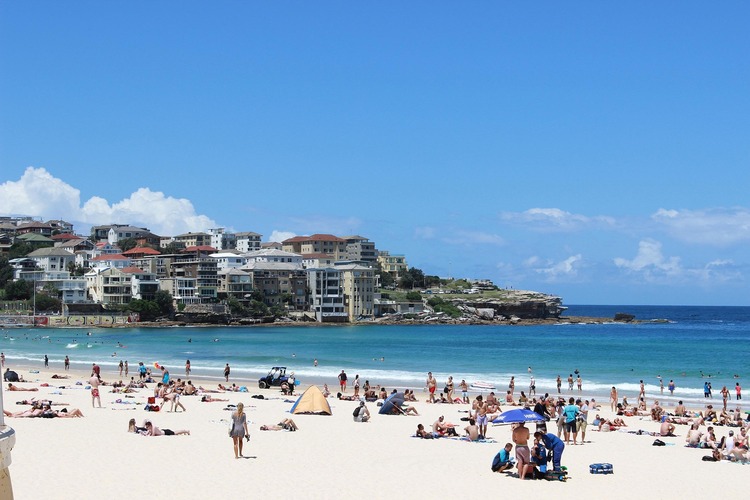
Image source: Pixabay
目次
1. The sense of camaraderie felt in the greeting “G'day Mate,” showing consideration for both people and nature
2. Reef-Friendly Sunscreen Cream: Protects Your Skin and the Ocean
3. Environmentally Conscious Laundry Habits Spreading in Australia
4. The “For Someone/For Something” Perspective That Resonates with Consumers
1. The sense of camaraderie felt in the greeting “G'day Mate,” showing consideration for both people and nature
Living in Sydney, you realize that “mateship” is never an abstract ideal, but something deeply ingrained in daily life. Symbolizing this everyday spirit is the greeting “G'day, Mate.”
G'day is short for “Good day,” and Mate means ‘friend’ or “buddy” in Australian English. It's a casual greeting used freely with close friends and strangers alike, radiating that quintessentially Australian friendly vibe of “I'm your mate.”
In Australia, people smile and say “G'day Mate” even to strangers. This greeting often sparks unexpected chats in cafes or parks. It embodies a flat relationship transcending hierarchy and background differences, along with a sense of “being part of the same community.” This “relationship supported by a sense of camaraderie” is seen in various everyday situations, and this attitude remains unchanged at the beach.
On weekend beaches, it's common to see people naturally striking up conversations, lending sunscreen, or complimenting each other's surfboards and swimwear. This communication stems from being “friends sharing the same sea.” Additionally, everyone takes their trash home as a matter of course, and children participate in beach cleanups as an extension of their play. Each of these actions speaks to a respect for both friends and nature.
Furthermore, visiting supermarkets and drugstores reveals how values like ocean kindness and camaraderie are reflected in everyday shopping.
Phrases like “Reef-friendly” or “Ocean safe” printed on product labels are not just catchy slogans for differentiation; they are understood as a natural consideration in creating environmentally conscious products. Respecting both people and nature as members of their own community—this value of mutual respect is deeply embedded in the culture and business practices of this country.
2. Reef-Friendly Sunscreen Cream: Protects Your Skin and the Ocean
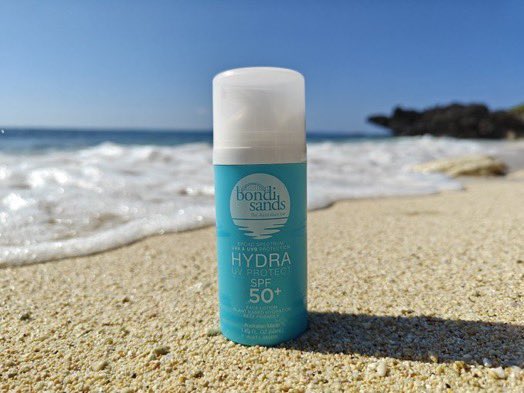
Image: Photographed by the author's acquaintance
In Australia, where intense UV rays are a constant presence, sunscreen is an essential item year-round. Australian consumers are not satisfied with simply “protecting their skin”; a widespread awareness exists that they should also consider the impact on the environment and community, making choices that are “ocean-friendly.”
Supermarkets and drugstores stock numerous sunscreens labeled “Reef-friendly,” making it easy to purchase environmentally conscious products. “Reef-friendly” signifies formulations free from ingredients harmful to coral reefs, such as oxybenzone and octinoxate, and has now become the standard for sunscreens.
In Australia, home to the world's largest coral reef, the Great Barrier Reef, the ocean's health is intrinsically linked to daily life, tourism, and the economy. Consequently, a shared understanding that “protecting the ocean means protecting our own way of life” is deeply rooted among the population, forming the foundation for purchasing decisions. This environmental awareness extends beyond active groups like surfers and divers to the general public, who also prioritize choosing eco-conscious products.
Popular local sunscreen brands like “Bondi Sands” and ‘SunButter’ are widely supported by diverse consumers, valued for their environmental credentials and ease of use.
Bondi Sands, named after Sydney's famous Bondi Beach, is a skincare brand whose philosophy is to deliver a lifestyle that coexists with “Sand, Sea, Sun.”
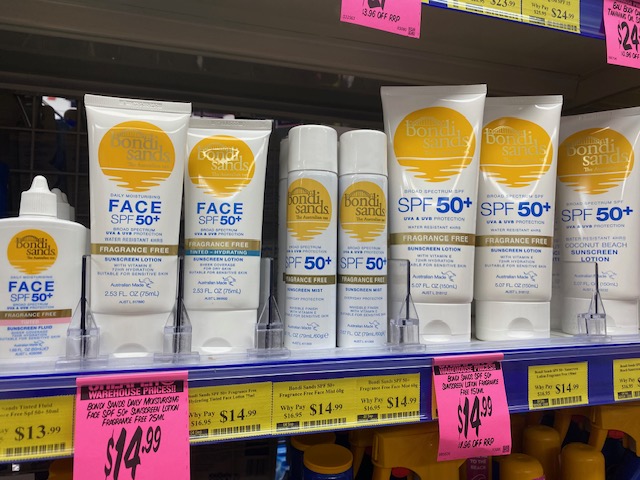
Image: Photographed by the author
We are advancing the development of packaging using sustainable materials and the introduction of recyclable bottles, while also focusing on manufacturing processes that prioritize waste reduction and reuse. Furthermore, we offer a wide range of products tailored to different skin types and uses, allowing customers to choose the optimal product for their needs, from daily use to outdoor activities.
SunButter is a sunscreen brand founded by Australian surfers out of their love for the ocean and nature. Its products use naturally derived ingredients, balancing gentleness on the skin with environmental consideration.
Furthermore, the use of durable metal cases instead of plastic, designed to encourage waste reduction and reuse, also sets it apart from competitors. Additionally, a portion of sales is donated to marine conservation projects and environmental organizations, meaning that simply purchasing the product becomes an action that promotes coexistence with the ocean.
3. Environmentally Conscious Laundry Habits Spreading in Australia
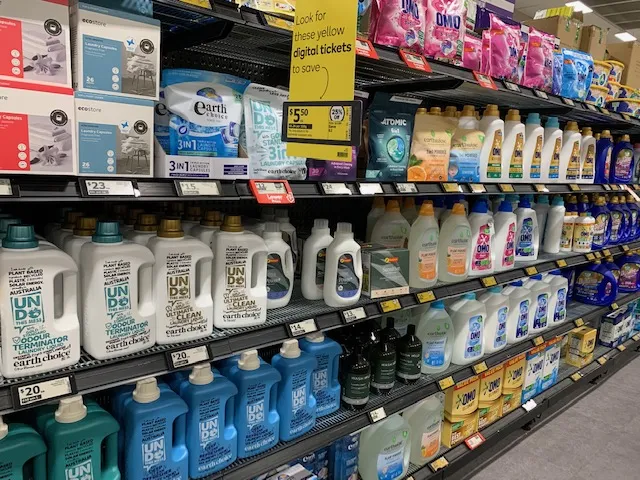
Image: Photographed by the author
Even household laundry detergents reflect growing environmental awareness. Supermarket detergent aisles now feature labels like “biodegradable” and “grey water safe,” with formulations free of microplastics and phosphates becoming standard.
Popular brands like “ecostore” and “Earth Choice” are prime examples, both promoting messages like “harmless to marine life” and “safe when returned to water.”
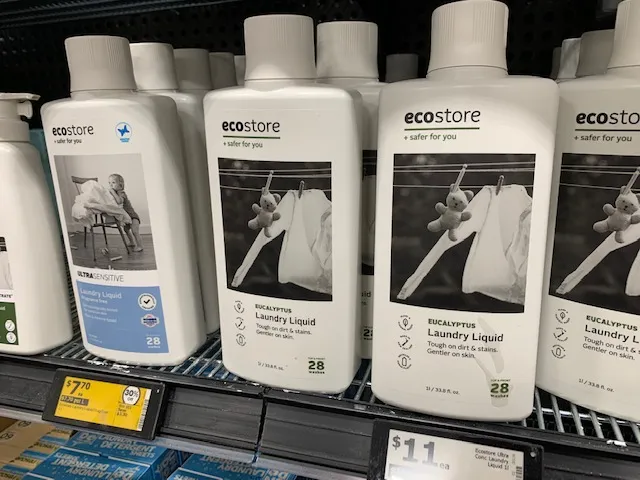
Image: Photographed by the author
New Zealand-based “ecostore” offers a wide range of products including cleaning supplies, skincare, and oral care. Its laundry detergents feature formulations using plant-based and mineral-derived ingredients to minimize environmental impact.
Furthermore, the bottles incorporate sugarcane-derived plastic and recycled plastic. The introduction of concentrated formulas also reduces the amount of water and plastic used. These initiatives provide consumers with opportunities to incorporate environmentally conscious choices into their daily lives.
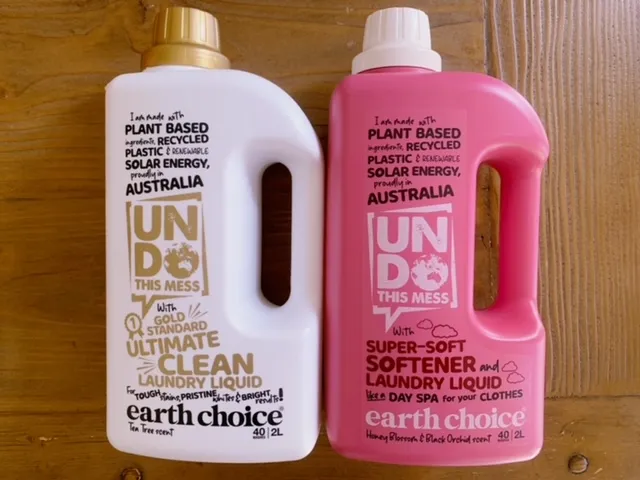
Image: Photographed by the author
Since 1981, Earth Choice has continued to develop products that reduce environmental impact without compromising performance.
Its bottles are made from 100% recycled materials, and the formulas use plant-based cleaning agents. Sustainability is pursued thoroughly throughout the manufacturing process as well, including the use of renewable energy.
In addition, Earth Choice partners with the nonprofit organization Carbon Positive Australia to support native tree planting projects within Australia, contributing to CO₂ reduction and biodiversity conservation.
With its bright, pop-style packaging and naturally fresh scent, the brand is also appealing in everyday use, and it has become one of the staple brands my household stocks up on during sales.
Sheet-type laundry detergent (laundry sheets) is also rapidly gaining popularity. Being lightweight and space-saving, it is not only an eco-friendly choice but is also becoming established as a practical option for daily life.
Since one sheet provides a single wash load, there's no need to measure out detergent. It's easy to store and carry, and we hear it's used while traveling or on business trips.
Furthermore, unlike liquid detergents, they eliminate the need for plastic bottles, contributing to reduced plastic waste. This offers significant benefits from the perspectives of marine environmental protection and resource conservation. Their lightweight nature also reduces CO₂ emissions during transportation, making them highly regarded as products that successfully balance environmental consideration with convenience.
4. The “For Someone/For Something” Perspective That Resonates with Consumers
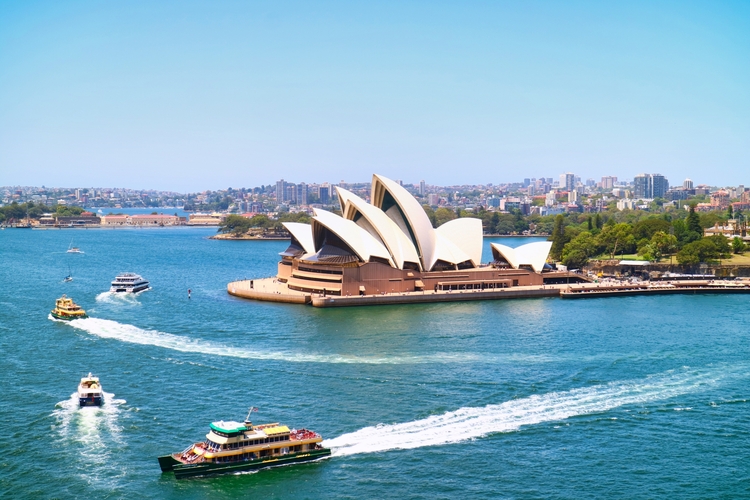
Source: PhotoAC
The Australian national character is deeply imbued with the value of mateship—caring for nature as one would care for friends. For local consumers, choosing products mindful of the marine environment feels less like a conscious “eco-action” and more like everyday courtesy to protect friends, nature, and the lives of future generations.
To resonate with consumers in the Australian market, it is crucial to demonstrate environmental and social consideration in a way that is tangibly felt within their daily lives and purchasing experiences. Reflecting this perspective in advertising and product development can significantly influence consumer behavior and choices.
While terms like “eco” or ‘sustainable’ alone may not resonate strongly, the warm perspective of “for someone or something” tends to reach the hearts of Australians more easily. Marketing activities rooted in the spirit of mateship and mindful consideration hold the potential to create new opportunities within the Australian market.
-

Author profile
TNC Lifestyle Researcher
Residing in Sydney, Australia since 2001. After working in the early childhood education industry, I now conduct interviews, write articles, and perform market research on Australian trends and lifestyles.
-

Editor profile
Chew Fong-Tat
Malaysian researcher who has lived in Japan for 14 years and has handled many surveys on ASEAN countries.
 Global Market Surfer
Global Market Surfer CLP
CLP



